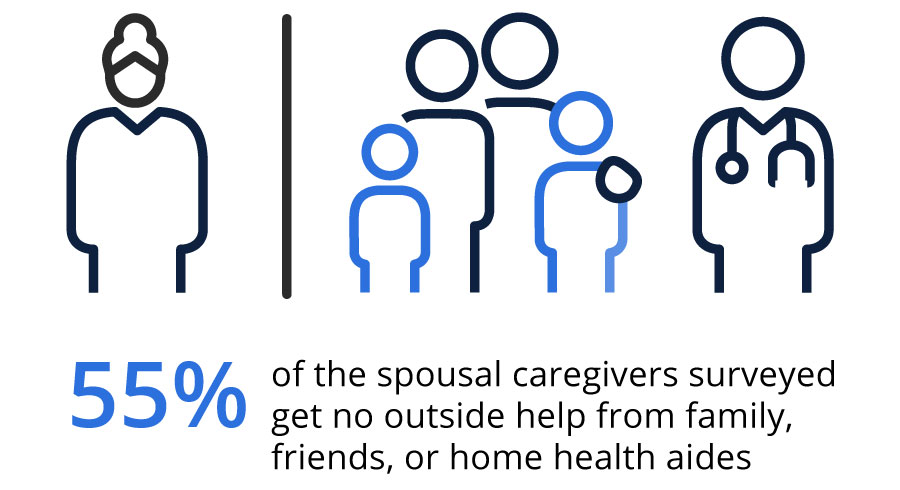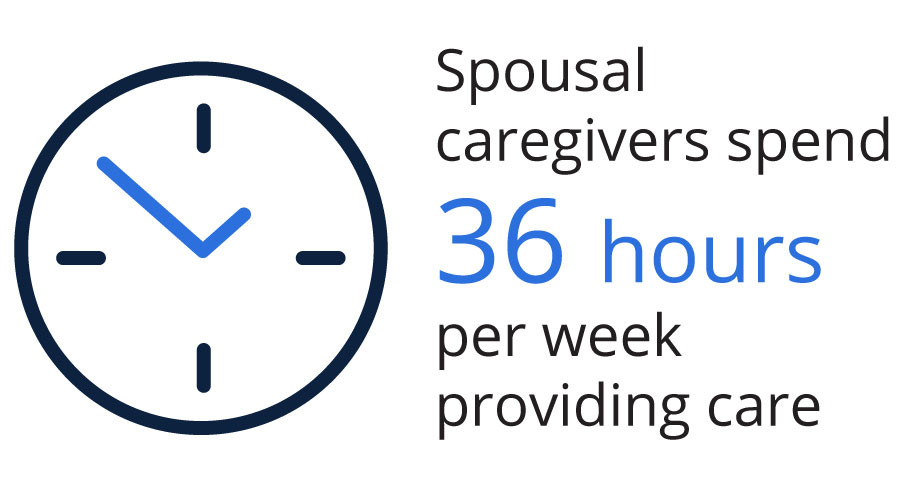Spousal Caregivers Tend to Do It All Themselves

Source: Caring for a Sick Spouse Can Shake a Marriage to Its Core, Kaiser Health News, 11/12/19. Most recent data available.
We’ve all started DIY home projects that spiral into disasters. You think, “Why should I pay someone for help when I can handle it myself?” Then things don’t go as planned. It ends up taking more time, money, and patience than you’d hoped for—all because you didn’t get help.
If you’re caring for your spouse or loved one, you might have a DIY mindset but you’re experiencing burnout. Below are three effective ways to cope with the stress of caregiving, and turn a daunting task into a manageable one:
First, How to avoid isolation
Many dedicated caregivers focus so much on caring for their spouses they neglect caring for themselves. As a result, they spend less time engaging with friends and family, and they become more socially isolated. Also, spousal caregivers are more likely to experience depression than caregivers who aren’t spouses.1
Avoid isolation using these ideas:
- Connect with others who are caring for a spouse
Find and connect with other spousal caregivers. They may have similar challenges and you can provide emotional and social support to each other. - Join a support group—online or in-person
A support group can provide validation and encouragement, as well as problem-solving strategies for difficult situations. People in support groups understand what you’re going through. These groups can also be a good place to create meaningful friendships. More than a quarter of caregivers seek support on an online forum right after they begin caring for their loved ones. By the end of their first year of caregiving, nearly half of them have turned to an online community for assistance. Below are some sites that provide information about support groups, in-person and online.
- In-person support groups:
- Well Spouse Association is a national organization made up of spousal caregivers coping with a broad range of medical conditions
- Eldercare.gov offers resources for free caregiver counseling and support groups
- Online support groups:
- AgingCare.com has a section on their site where you can connect with elder-care experts and family caregivers
- Caring.com offers caregiving tips, advice, and support
- Family Caregiver Alliance Caregivers can share, interact, and learn from each other
- Find new friends
Take time to go places or do things you enjoy. If you like to read, consider joining a book club. You could also join a gym or take a fitness or sports class: golf, tennis, tai chi. The more it involves contact with other people, the better. Meetup.com can help connect you with people in your area who have similar interests.







